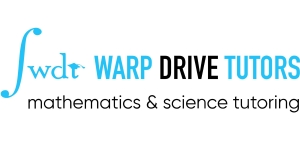Hi All,
This is a bit of a “mini blog” but looks at a topic many of us have some questions about. We will update it as we learn more.
So this year’s AP® exams are obviously considerably different because of the shortened format, and also because of the open note format. Open note/open book exams are definitely not easier, and the consensus amongst our tutors (all of whom are full time teachers) is that to make up for the shortened length, the questions are going to be ridiculously hard. Here we focus on some of the AP Math and Science exams.
This information will probably help struggling students the most. For the kids who have had kind of a rough go at it all year, we have found in the past that they get a lot of mileage from looking at the AP Course content description itself. So for AP Physics 1, for example, they can look at the Unit guides for Units 1-7, here: https://apstudents.
The logic behind this is that since the people who write these guides also write the exams, knowing what the exam writers expect the students to learn might be a good window as to what is likely to appear on the exam. We have had a number of students over the years for whom school is a bit of an extracurricular activity, who then reviewed the AP Unit guides (previously referred to in the older Unit Guides as the “Big Ideas” ) and who scored a 4. This has proven especially true for AP Bio.
Below are the links for some of the more popular Math/Science AP course descriptions. For those teaching, or enrolled in, an AP Math or Science class you undoubtedly already have this info but we are just putting it here all in one place for convenience:
AP Physics 1: https://apstudents.
AP Physics 2: https://apstudents.
AP Physics C, Mechanics: https://apstudents.
AP Physics C, Electricity and Magnetism: https://apstudents.
AP Chemistry: https://apcentral.
AP Biology: https://apstudents.
AP Calculus AB: https://apstudents.
AP Calculus BC: https://apstudents.
